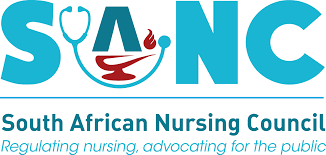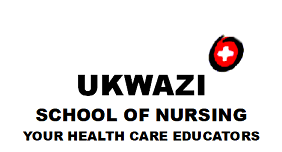Netcare Education Requirements 2025, Netcare Education Durban online application form 2025.
Below are the official Netcare Education Durban admission entry requirements and what you need to know about Nursing programs.
Nursing encompasses autonomous and collaborative care of individuals of all ages, families, groups, and communities, sick or well, and in all settings. Nursing includes the promotion of health, prevention of illness, and the care of ill, disabled, and dying people
A registered nurse is a nurse who has graduated from a nursing program and met the requirements outlined by a country, state, province, or similar licensing body to obtain a nursing license. An RN’s scope of practice is determined by legislation and is regulated by a professional body or council.
Netcare Education Entry Requirements 2025
The Netcare Education Durban Online Admission Application Form 2025 Intake, application fee, courses offered, requirements, term dates, bursaries, registration dates, registration dates, department, programs duration, contact address, location, registration form, admission guidelines pdf download, application deadline/closing date for 2025 academic year has been released.
The Netcare Education Durban trusts that your studies will be pleasant and rewarding. Feel free to contact the school about any aspect of your studies – we will gladly assist you.
Why Choose Netcare Education Durban?
- Receive accredited training.
- We offer competent Educators, a safe and secure environment.
- We have a well-equipped simulation laboratory where you can practice your clinical skills before entering the clinical environment.
What Qualification Do I Need to Become a Nurse?
To qualify as a nurse, you can do one of the following:
- a four-year bachelor degree in nursing
- a one-year higher certificate in auxiliary nursing
- one-year postgraduate advanced diploma in nursing and midwifery on top of your degree or diploma.
After you get your qualification, you have to register with the South African Nursing Council (SANC).
Netcare Education Durban Admission Requirements
It is recommended that Mathematics, Physical Sciences, and Biology be taken as Matriculation subjects. Candidates shall be admitted to the program if they have the following: Mathematics level 4 or Mathematics literacy level 5, Physical Science level 4 and Life Science level 4.
Clinical training shall be done in general and midwifery hospitals, psychiatric hospitals, the community and community health service facilities in the respective Province.
The bachelor’s degree in nursing is generally a four-year-long course that is offered by most public universities in South Africa: UCT, Wits, Stellies (only postgrad), UP, UWC, NWU, UKZN, UNISA, etc. The degree consists of both a compulsory practical clinical training component and a theoretical component. Once you have completed a BCur (or equivalent), you are able to register as a professional nurse and midwife with the SANC.
Entry Requirements:
It is recommended that you take Mathematics, Physical Sciences and Life Sciences, but this is not compulsory at all institutions. You will need a National Senior Certificate (NSC) or equivalent qualification at exit level 4, with:
- First additional or home language (50-59%)
- Life Orientation (50-59%)
What does the course look like?
The BCur usually prepares students to work in four specific fields:
- general nursing (working in hospitals and medical practices)
- midwifery (caring for mothers and babies)
Your course will have a practical component. You will learn how to do the kind of practical work you will need to be able to do when you become a nurse. In the theoretical component, you will learn the theory of what it is to be a nurse and you will study medical, biological and natural sciences, psychological and social sciences, and pharmacology so that you have the knowledge you need to be competent and successful healthcare professional.
These courses are often offered by universities of technology like DUT, TUT, VUT and CPUT. This course is only three years long and also consists of practical and theoretical work. After you have completed this qualification you are able to work as a registered staff nurse or enrolled nurse.
Entry Requirements
You will need a National Senior Certificate (NSC) or equivalent qualification at exit level 3 or 4, depending on the institution, to qualify to study this course. However, it is not as important that you have taken mathematics and/or physical sciences as it is for the BCur. You will also need:
- First additional or home language (50-59%)
- Four other subjects (50-59%)
- Life Orientation (50-59%)
What does the course look like?
During this course, you will cover similar work to what you would cover in the BCur degree. You will go less in-depth with the work as the course is shorter. You will learn how to provide nursing care, apply your knowledge in the nursing practice, diagnose and treat minor illnesses and provide reproductive health care.
This is a one-year qualification that is aimed to equip you with the skills that you will need to provide basic nursing care to individuals while working under the supervision of a nurse who holds a national diploma or degree. After completing your higher certificate you will be able to register as an enrolled nursing auxiliary.
Entry Requirements:
You will need a National Senior Certificate (NSC) or equivalent qualification at exit level 3 or 4, depending on the institution, to qualify to study this course, however, it is not as important that you have taken mathematics, physical sciences or life sciences as it is for the BCur. You will also need:
- First additional or home language (50-59%)
- Four other subjects (50-59%)
- Life Orientation (50-59%)
What does the course look like?
This course will teach you how to apply your knowledge of the theory, the practice of basic nursing and how to asses, plan, implement and evaluate basic nursing care for individuals and groups.
This course is designed to strengthen and deepen your knowledge of nursing and midwifery. During this course, you will specialize as a nurse or midwife (or accoucheur). This course is also only one year long and can only be completed after you have received a diploma or degree in nursing. Unlike the other courses, this course is mostly theoretical. This qualification will also be helpful if you wish to pursue a career in nursing management. This is the postgraduate course for an individual who has a diploma in nursing, will have to complete in order to work as a nursing sister in South African Hospitals.
Entry Requirements
In order to enroll in a course like this you have to have completed:
- Bachelor in Nursing Sciences (or equivalent) or a degree and comprehensive diploma
- Diplomas in nursing and midwifery
- Advanced diploma in midwifery, staff nurse and advanced diploma
You also have to have some experience to apply to this course – excluding your community service year. You have to have two years of experience as a Professional Nurse and/or Midwife (including at least one year in the field of specialty within the last five years).
What does the course look like?
This course is designed to teach you how to work like a nurse who is clinically focused, well-informed, competent and innovative. At the end of this course, you will have specialized as a nurse or midwife/accoucheur and you will be able to give well-informed scientific care to your patients.
After your Qualification
After you qualify and register with the SANC, you can choose to work in any number of places, but if you want to study further, you can study a master’s degree or advanced diploma in nursing and you can register as an advanced practice nurse. There are two main categories of advanced practice nurses:
- Clinical nurse specialists: People who have in-depth and specialized qualifications who work closely and collaboratively with other medical practitioners.
- Advanced nurse practitioner: A person who works in primary care — health assessment and the diagnosis and treatment of ailments. In South Africa, advanced nurse practitioners are often referred to as primary health care nurses and they can work as midwives, psychiatric and pediatric nurses outside of the hospital environment.
South African Nursing Council (SANC)
The South African Nursing Council (SANC) is the body entrusted to set and maintain standards of nursing education and practice in the Republic of South Africa. It is an autonomous, financially independent, statutory body, initially established by the Nursing Act, 1944 (Act No. 45 of 1944), and currently operating under the Nursing Act, 2005 (Act No. 33 of 2005).
For more information and inquiries, you can contact the South African Nursing Council (SANC) by visiting the official website or campus. https://www.sanc.co.za/
Please use the comment section for your queries (Questions, Suggestions, and Contribution) regarding the Netcare Education Durban.
Don’t hesitate to like our social platforms in order to share, discuss & get the latest updates of the Netcare Education Durban.
SHARE THIS POST WITH OTHERS!

